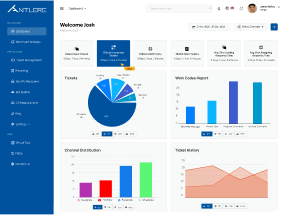The History of BPO Companies: From Cost Reduction to Corporate Partners
From humble cost-saving beginnings to smart innovative strategies, the history of BPO companies has unfolded in an incredible way over the years. It began with a simple delegation of tasks and has evolved into a global power transforming how companies compete and operate.
Outsourcing has evolved from an offshore move to building long-term partnerships and leveraging technology to access specialist skills. It is only by looking back that one can appreciate the role of the history of BPO companies in building this multi-billion-dollar powerhouse that is core in driving efficiency and innovation.
Historical Background: Production and Data Outsourcing
The history of BPO companies started with businesses outsourcing non-core functions. Such outsourcing of supply chain components supported by digital technology emerged only recently, even for soft drink giants like Coca-Cola. For example, in the 1960s and 70s, concepts like “time-sharing” (making computing services available remotely via terminals) paved the way for the BPO we know today.
In the 1970s and 1980s, companies started to outsource data processing, payroll, and back-office administration. This modern practice pushed ahead the broader history of BPO companies as companies explored the advantages of delegation.

The Emergence of Standalone BPO Companies
The past twenty years or so have seen BPO companies coming into their own. The turning point on this journey and a pivot into more specialized, dedicated providers and offerings came about in the late 1980s and 1990s.
Historic case studies of outsourcing, such as Kodak outsourcing its IT systems as early as the late 1980s, represented key early steps in establishing outsourcing as a business strategy. In 1988, Affiliated Computer Services (ACS) was founded to provide data services across industries, quickly scaling through contracts and acquisitions.
Simultaneously, many of the other giants (such as Genpact) started under the umbrella of GE itself. GECIS was formed in 1997 to service GE’s back-office processing needs. Such bold action is what makes the history of BPO companies closely related to the expansion of their big players into outsourced operations.
Global Expansion and Front-Office Outsourcing
With the unfolding history of BPO companies, the service category began to broaden. Teleperformance (founded in Paris in 1978) was one of the earliest BPO companies to grow around the globe, including in Europe, Asia, and the Americas, creating a pipeline for the extended BPO global footprint.
Cognizant, on the other hand, began as an in-house unit of Dun & Bradstreet in Chennai in the year 1994. In the late 1990s, it became Cognizant Technology Solutions, as seen in the history of BPO companies turning into 100% IT and process service providers. Wikipedia.
And rather than focusing on back-office handling, the emphasis was on managing customer care in the front office. Call centers, data support, and human resources outsourcing.
Digital Shift and Strategic Evolution
Over the years, the evolution of BPO companies has shaped the way companies work from a process-centered labor arbitrage to tech-driven and strategic process partnerships. Cloud computing, VoIP, AI, and automation came to the market in the digital era, altering offerings and the stack of value delivered.
The BPO landscape that we see today is centered around providing high value, such as analytics, financial research, market research, cybersecurity, and digital transformation support. The sector remains booming: the global BPO market was worth approximately USD 302.6 billion in 2024, with estimates to surpass USD 328 billion in 2025.

Brand Examples with Credibility in Action
Genpact (initially GECIS) pioneered the way a captive BPO facility could grow into a global service leader executing millions of transactions and the value of BPO across financial operations.
Cognizant: Techie unit turned global BPO behemoth with a smorgasbord of tech and business services Wikipedia
Teleperformance, having established operations across continents since the late 1970s, has become one of the global giants in the contact center and BPO space.
The Contemporary Terrain and Future Forecast
As the days and months fly by, the annual chapters of the history of BPO companies still need to be written. Business process management (BPM), an evolved form of BPO, is being compelled to move towards value chain integration, and this trend is only going to get accelerated in the post-automation and post-AI era. BPM industry growth slowed down slightly in 2023 (4.5-5.5%) and continued to outperform IT services.
Interestingly, the BPO industry’s shift from the call center to high-value jobs in software development, analytics, and legal services in the Philippines. It shows how its workforce and alignments have matured. Employment in this sector is set to expand to 2.5 million by 2028.
Conclusion: A historical depiction of BPO companies
The history of BPO companies shows constant reinvention and a journey of endless value creation starting from very early cost-saving tactics to a strategic, technology-enabled partner. And with this understanding, companies can harness BPO for more than savings but for growth, innovation, and competitive edge.
Interested in Getting Your Business Moving with Established BPO Brilliance?
Abacus BPO has decades of experience in back-office, front-office, and digital transformation services. Leave it to us to let you focus on what is important, doing what you do best by scaling your core business. Get in touch with Abacus BPO to consider some future-ready approach to profitable outsourcing partnerships.









